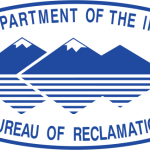- Settore: Government
- Number of terms: 15655
- Number of blossaries: 0
- Company Profile:
A U.S. Department of the Interior agency that oversees water resource management incuding the oversight and operation of numerous diversion, delivery, and storage projects the agency has built throughout the western United States for irrigation, water supply, and attendant hydroelectric power ...
An embankment dam in which more than 50 percent of the total volume is formed of compacted earth material generally smaller than 3-inch size. Seepage through the dam is controlled by the designed use of upstream blankets and/or internal cores constructed using compacted soil of very low permeability.
Industry:Engineering
A location staffed to ensure the continued movement of traffic inside or outside an area of risk during an emergency or disaster. Traffic control is a temporary function for use where normal traffic controls are inadequate or where redirection of traffic becomes necessary due to emergency conditions.
Industry:Engineering
A one-piece fabricated steel unit which is lowered into guides and seals against a frame to close a water passage in a dam, conduit, spillway, etc. An object used to isolate a portion of a waterway for examination, maintenance, or repair. A wall or partition erected to resist ground or water pressure.
Industry:Engineering
The most severe wind that is reasonbly possible at a particular reservoir for generating wind setup and runup. The determination will generally include the results of meteorologic studies which combine wind velocity, duration, direction, and seasonal distribution characteristics in a realistic manner.
Industry:Engineering
The Williams-Steiger Occupational Safety and Health Act of 1970 (OSHA) is a law designed to protect the health and safety of industrial workers and also the operators of water supply systems and treatment plants. OSHA also refers to the federal and state agencies which administer the OSHA regulations.
Industry:Engineering
A system of interconnected power lines and generators that is managed so that the generators are dispatched as needed to meet the requirements of the customers connected to the grid at various points. Gridco is sometimes used to identify an independent company responsible for the operation of the grid.
Industry:Engineering
A low embankment, usually constructed to close up low areas of the reservoir rim and thus limit the extent of the reservoir. Embankment for restraining a river or a stream. Embankments which contain water within a given course. Usually applied to dams built to protect land from flooding. See saddle dam.
Industry:Engineering
A map delineating the area that would be flooded by a particular flood event. It includes the ground surfaces downstream of a dam showing the probable encroachment by water released because of failure of a dam or from abnormal flood flows released through a dam's spillway and/or other appurtenant works.
Industry:Engineering
A pipeline or conduit designed to withstand pressure surges leading from a forebay or reservoir to power-producing turbines, or pump units. Conduit used to convey water under pressure to the turbines of a hydroelectric plant. A pressurized pipeline or shaft between the reservoir and hydraulic machinery.
Industry:Engineering
Angle between the horizontal and the maximum slope that a particular soil or geologic material assumes through natural processes. For dry granular soils, the effect of the height of slope is negligible; for cohesive soils, the effect of height of slope is so great that the angle of repose is meaningless.
Industry:Engineering
